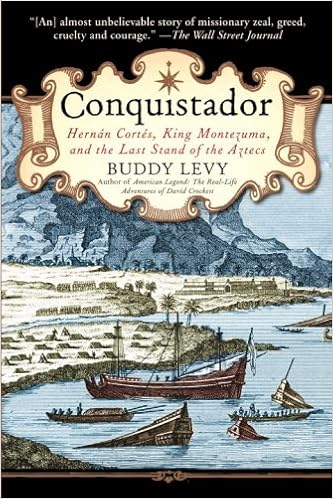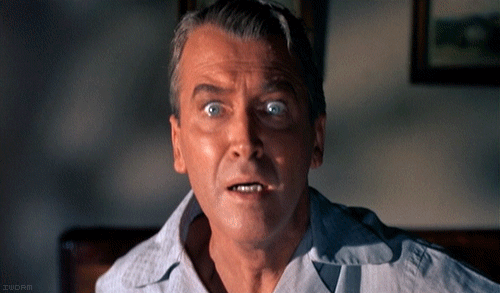How to become a history nerd in five agonizing steps
In my second post, I talked about the first time I ever read a history book by my own choice (that is, not including the stuff I was forced to read for university; the nightmares - they will never fade) and how this was the first stage in my disease of old-stuff-lovin'. Many of you (assuming that there ARE many of you reading this, which, according to the stats page, may be optimistic) are probably also wondering: how can I, too, acquire this disease? Well, let me tell you - it requires immense amounts of time and effort, is excruciatingly painful, and will cost you your social life. But it's totally worth it! At least, it's better than NASCAR:

(Yes, this is the second time I have dissed NASCAR, and no, it will not be the last).
At any rate, for those of you wondering how you can become history nerds, or who are concerned that you may be developing symptoms, the following guide may help you figure out how far in your case the disease has progressed.
STAGE 1: History? Huh? You mean something happened before right now?
This is the stage where your love for history is still latent. Deeply latent. This is the stage where, given the choice between reading a history book and licking razor blades, you would lunge for the Mach 3. At this point, you probably should not even attempt to open an actual history book - you might go blind. Just spend some time googling "Caesar memes."
Hee hee. Except he didn't actually conquer Britain, he just explored it for a few weeks and then was like "Meh, I should probably go find some Germans to harass." IN YOUR FACE, MEME.
STAGE 2: Sure, I'll look at a history book if there are nice, big pictures and scintillating anecdotes.
First off, if you don't know what a 'scintillating anecdote' even is, you'll want to spend a lot of time on this stage before moving on to the next one. For this stage, I would recommend a good old-fashioned volume of Horrible Histories (with such scholarly titles as Groovy Greeks and Rotten Romans). If even that seems daunting, check out some of their videos first. Always good for a giggle.
STAGE 3: Hmmm. Well, I guess I'll try a history book but only if it reads EXACTLY like a spy-thriller novel.
Hey, we're getting somewhere! For this stage, you'll want to start by picking up this amazing book. Once you've picked your jaw up off the floor, move on to Conquistador by Buddy Levy. This book deserves its own entry, which I may get around to one day. Similar to We Die Alone, you will frequently forget that you are reading history and not some deranged fantasy fever-dream. Unfortunately, it's all true... (you'll understand the "unfortunately" part when you crack it open).

STAGE 4: I have no social life and use reading to fill the void in my soul
The disease is well on its way to complete takeover. At this stage, you probably understand references like this:

This is probably the single broadest category of text, covering a whole swath of really incredible literature. Most of these books would completely overwhelm a 'stage-three'er, but if you're up for a very satisfying challenge, here are some of the titles I recommend:
For the ancient/medieval enthusiast: The Crusades, by Thomas Asbridge.
For the World War 2 buff: D-Day: The Battle for Normandy, by Antony Beevor.
For those who want to weep oceans of tears and suffer several shock-induced comas while following the heart-rending journey of one ill-fated royal family set against the sweeping backdrop of war and revolution in Imperial Russia (and discover the backstory behind this wedding-dance-classic by Boney M), look no further than: Nicholas and Alexandra, by Robert Massie. (Even if you know how it ends, the journey there is unbelievable).
STAGE 5: I yearn for self-inflicted pain
Well, this is it. At this stage, the disease has complete control - there's no going back. This is the stage at which you begin to actually enjoy works like the Penguin History of Europe series, which I am currently wading through. It contains titles such as The Inheritance of Rome, a 500-page slab of concrete that ACTUALLY contains the following sentence. I am not making this up.

(Yes, this is the second time I have dissed NASCAR, and no, it will not be the last).
At any rate, for those of you wondering how you can become history nerds, or who are concerned that you may be developing symptoms, the following guide may help you figure out how far in your case the disease has progressed.
STAGE 1: History? Huh? You mean something happened before right now?
This is the stage where your love for history is still latent. Deeply latent. This is the stage where, given the choice between reading a history book and licking razor blades, you would lunge for the Mach 3. At this point, you probably should not even attempt to open an actual history book - you might go blind. Just spend some time googling "Caesar memes."
Hee hee. Except he didn't actually conquer Britain, he just explored it for a few weeks and then was like "Meh, I should probably go find some Germans to harass." IN YOUR FACE, MEME.
STAGE 2: Sure, I'll look at a history book if there are nice, big pictures and scintillating anecdotes.
First off, if you don't know what a 'scintillating anecdote' even is, you'll want to spend a lot of time on this stage before moving on to the next one. For this stage, I would recommend a good old-fashioned volume of Horrible Histories (with such scholarly titles as Groovy Greeks and Rotten Romans). If even that seems daunting, check out some of their videos first. Always good for a giggle.
STAGE 3: Hmmm. Well, I guess I'll try a history book but only if it reads EXACTLY like a spy-thriller novel.
Hey, we're getting somewhere! For this stage, you'll want to start by picking up this amazing book. Once you've picked your jaw up off the floor, move on to Conquistador by Buddy Levy. This book deserves its own entry, which I may get around to one day. Similar to We Die Alone, you will frequently forget that you are reading history and not some deranged fantasy fever-dream. Unfortunately, it's all true... (you'll understand the "unfortunately" part when you crack it open).

STAGE 4: I have no social life and use reading to fill the void in my soul
The disease is well on its way to complete takeover. At this stage, you probably understand references like this:

This is probably the single broadest category of text, covering a whole swath of really incredible literature. Most of these books would completely overwhelm a 'stage-three'er, but if you're up for a very satisfying challenge, here are some of the titles I recommend:
For the ancient/medieval enthusiast: The Crusades, by Thomas Asbridge.
For the World War 2 buff: D-Day: The Battle for Normandy, by Antony Beevor.
For those who want to weep oceans of tears and suffer several shock-induced comas while following the heart-rending journey of one ill-fated royal family set against the sweeping backdrop of war and revolution in Imperial Russia (and discover the backstory behind this wedding-dance-classic by Boney M), look no further than: Nicholas and Alexandra, by Robert Massie. (Even if you know how it ends, the journey there is unbelievable).
CAUTION: the remainder of this post is for mature audiences only. Please remove all young children and NASCAR fans from the room before continuing.
Well, this is it. At this stage, the disease has complete control - there's no going back. This is the stage at which you begin to actually enjoy works like the Penguin History of Europe series, which I am currently wading through. It contains titles such as The Inheritance of Rome, a 500-page slab of concrete that ACTUALLY contains the following sentence. I am not making this up.
Emperors, themselves sometimes personally sympathetic to Monophysitism (as with Anastasius, and also the empress Theodora, Justinian's powerful wife) saw the Chalcedonian-Monophysite split as a political rather than a theological issue and attempted several times to promote intermediate positions between the two: Zeno's Henotikon in 482, Justinian's fifth council at Constantinople in 553, Heraclius' 'Monothelete' pronouncement, the Ekthesis, in 638.


Yes, that was just ONE SENTENCE. What's even more frightening is the fact that this sentence was not even hard to find - that's how the WHOLE BOOK is written. Even that, however, pales in comparison to the impenetrable monolith that is my current instrument of self-torture: Christendom Destroyed, a nearly-700-page doorstop also from the Penguin History of Europe. This book is so abstract, it makes just as much sense when you read it upside down. It is basically the literary equivalent of this:

I'm not gonna lie - this book is testing even my own enormous love of history to the breaking point; finishing it has become a matter of pride. It's kind of like being in a hot-dog eating contest: must... keep... reading... for the glory. BLEHHHHHHHH (spews random names and dates across the table)
So, which stage are you? Come and join us on the dark side - we have Ektheses.

I'm not gonna lie - this book is testing even my own enormous love of history to the breaking point; finishing it has become a matter of pride. It's kind of like being in a hot-dog eating contest: must... keep... reading... for the glory. BLEHHHHHHHH (spews random names and dates across the table)
***
So, which stage are you? Come and join us on the dark side - we have Ektheses.

Comments
Post a Comment